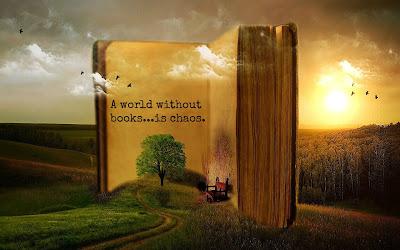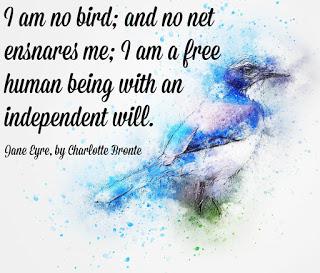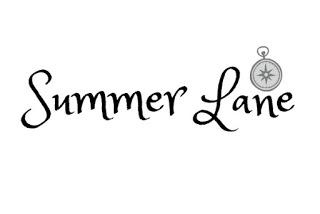 They say that writers are isolationists. These days, I'd surmise that the stereotype of a miserable, lonely, alcoholic, literary genius is outdated (we can't all glitter, and then crash and burn, like the Fitzgeralds, for example). Certainly there are those people, but modernly, publishing is a lot bigger than it used to be, which means there are more writers. This also means that there is a bigger pool of personality out there, with more stable authors and less Great Gatsby-types. Ernest Hemingway, for example, was a brilliant writer, yet extremely troubled. The same goes for authors such as Edgar Allan Poe (although based on his subject matter, is that really a surprise?), or even Charlotte Bronte. All were troubled. Their writing was, in essence, an escape from reality first and a career second. By contrast, happy-go-lucky authors such as E.B. White were just as famed, successful and beloved, and did not die tragically nor did they commit suicide. What's my point? Literature is full of diverse people with diverse backgrounds, and the sum of the whole brings a dazzling medium of variety and excitement to the world of publishing.
They say that writers are isolationists. These days, I'd surmise that the stereotype of a miserable, lonely, alcoholic, literary genius is outdated (we can't all glitter, and then crash and burn, like the Fitzgeralds, for example). Certainly there are those people, but modernly, publishing is a lot bigger than it used to be, which means there are more writers. This also means that there is a bigger pool of personality out there, with more stable authors and less Great Gatsby-types. Ernest Hemingway, for example, was a brilliant writer, yet extremely troubled. The same goes for authors such as Edgar Allan Poe (although based on his subject matter, is that really a surprise?), or even Charlotte Bronte. All were troubled. Their writing was, in essence, an escape from reality first and a career second. By contrast, happy-go-lucky authors such as E.B. White were just as famed, successful and beloved, and did not die tragically nor did they commit suicide. What's my point? Literature is full of diverse people with diverse backgrounds, and the sum of the whole brings a dazzling medium of variety and excitement to the world of publishing. I would like to think that I fall somewhere between the two extremes of troubled and happy-go-lucky. Who among us is not troubled to some extent? Seriously. Go look in the mirror. Are you human? I rest my case! I constantly see myself swinging on a type of pendulum from one extreme to another, a passenger in a vehicle of emotional swells. My writing is angry when I am angry. It's romantic when I'm romantic. It's silly when I'm silly. It's tragic when I'm feeling particularly devastated. I certainly channel all emotional aspects of my life into my work. If I didn't, I would be depriving my readers of a true emotional experience. There is simply no way to separate real emotion from fictional escapades. It is a part of the writing craft just as much as editing.
For example, a long-suffering theme of my life is loss of friendship. I've moved so many times and traveled so often that I was never able to hold down a normal friendship as a child, and as an adult, I seem to have resounding bad luck in the realm of friendship. I choose the wrong sort of person to befriend or allow myself to be cajoled into a definition of camaraderie that leaves me more of a servant than an equal. I carried my struggle of finding quality friends into adulthood. Shy and quiet, I seemed to attract a type of friend who, at times, seemed much more interested in controlling my life rather than their own. The classic bully syndrome. As years have passed, I have learned to assert myself and be more confident, to deflect such emotional attacks and to sift out the unhealthy relationships. It's like weeding a garden. The vegetables will never grow if the weeds choke them out.
 This deep-rooted personal problem of mine was a problem that I channeled into my books. I found an outlet for my frustrations in Cassidy Hart. In some ways, she was like me. Relatively mistreated by her peers and underestimated by everyone around her. Over the course of the 10-book Collapse Series, she slowly comes into her own, grasping her independence, asserting herself, and removing herself from the position of doormat, graduating to a position of leadership. Cassidy started to grow up when I did, I think. By the end of the original series, both she and I had come a long way: but that character evolution never would have happened if I wasn't acquainted with the issue myself.
This deep-rooted personal problem of mine was a problem that I channeled into my books. I found an outlet for my frustrations in Cassidy Hart. In some ways, she was like me. Relatively mistreated by her peers and underestimated by everyone around her. Over the course of the 10-book Collapse Series, she slowly comes into her own, grasping her independence, asserting herself, and removing herself from the position of doormat, graduating to a position of leadership. Cassidy started to grow up when I did, I think. By the end of the original series, both she and I had come a long way: but that character evolution never would have happened if I wasn't acquainted with the issue myself. Another example. How many of us have been ill-treated by someone? How many of us have been ill-treated be a lot of someones? The sting of rejection goes deep, even in adults. For me, it's the resounding and insulting betrayal of friendship or the residual reminder that I'm not good enough to be seen with you. This is especially prevalent in a small community, where men and women alike cling to the societal groups that have been in place for a hundred years. To branch out would mean to accept new people with new backgrounds, and wouldn't that be an utter travesty? My constant frustration and anger at small-minded, prejudiced and judgmental individuals is yet another emotion that I rope into my books. My long-winded experience with this type of dilemma is conquered in my stories: I write characters who are diverse and unique, who overcome judgment and stereotypical abuse to rise above, prove their tormentors wrong, and gleefully declare victory over an oppressive enemy.
You know what I'm talking about. It's the human experience: love and loss, rejection and disappointment. Pain is part of life. Whether it's on a low level - such as the rejection of a friend or the disappointment of a betrayal; or on a huge level - such as struggling with depression, the loss of a loved one or fighting suicidal thoughts. Pain is what makes the world go round, because we are all humans and we all share a piece of the planet. Without pain, quite honestly, we wouldn't have any depth! That should tell you everything you need to know.
As a writer, you take those experiences and use them to build a more fascinating and organic story world. Suffice it to say that I draw upon my own experiences every day in my fiction. I use it as the foundation of realism and erect an imaginary story and concept around it. It's cathartic and fun and best of all: it's effective.
To sum up, I do not think that it is necessary to become a Fitzgerald or a Hemingway or a Poe to attain legendary literary status. It just so happens that some of the people on this earth who have experienced the most pain also have some of the most interesting stories to tell. After all, there is no good story without adventure, heartache and disappointment. Who wants to read an adventure about the perfect life where nothing bad ever happens and everything is the same, day after day? Not me! I want a level of unpredictability, disappointment and tragedy. Why? Because what kind of a hero do we have if they have to overcome nothing more than a red wine stain on a white dress? We need more than that. We need depth and meaning and satisfaction. Writing is, in my humble opinion, a form of vindication. Through reading stories, we achieve a sort of growth and adventure that makes up for our own shortcomings or bad experiences. I believe that writers should use their work to overcome their obstacles and negativity. We should use it to entertain. We should use it to give someone the gift of victory and adventure. Crashing and burning is not a requirement.

CRASH AND BURN: Finding Vindication through Writing

